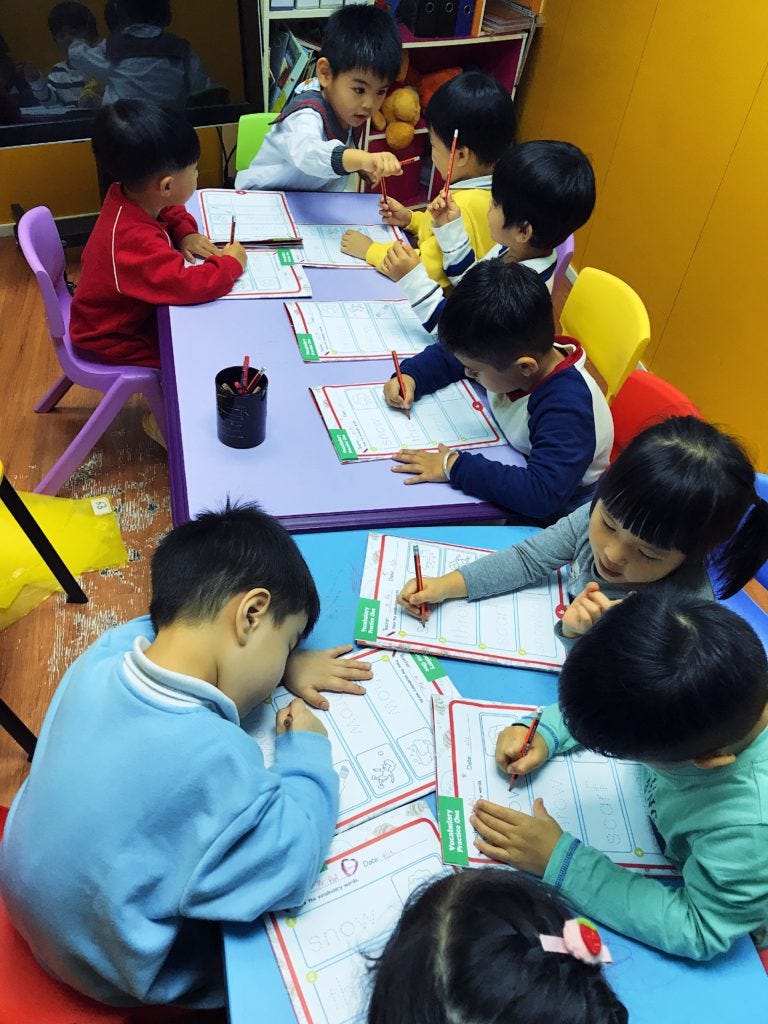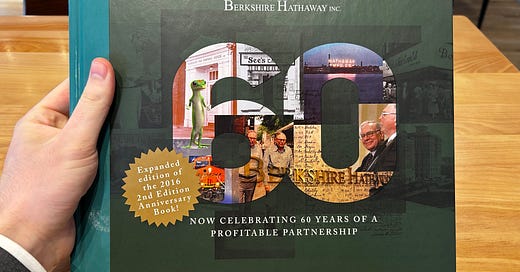
My 5-year-old Guru
The other day while I was teaching, I asked one of my students what he wants to do when he grows up. (This kid is five years old, speaks three languages, and usually retorts “too easy Mr. Phil!” when asked to spell words like ‘restaurant’ or ‘thrifty’ or ‘helicopter’). With a beaming smile adorned with dimples and overflowed with crooked baby teeth, my student gave me a simple, forthright answer, one that reflected his unsullied purity:
“I really really want to work as a construction worker. I want to build a house for my mommy.”
This trilingual, budding prodigy of mine seemed to know exactly what he wanted and exactly why he wanted it. He did not address social status, wealth, or legacy but, rather, he declared his devotion to his mother and what he wanted to do to substantiate his sentiment.
It was one of the most beautiful statements I’ve heard in a long time—one that came from someone I quadrupled in age. The simplest utterances can often be of the highest profundity. Children do not get enough credit for the wisdom they so freely dole out, nor do they have a receptive enough audience to heed their advice. “What do you want to do when you grow up” can be a cliche question to pose to a child, but it can often serve as a poignant reminder of the dreams we’ve relinquished, the ambitions we’ve forgotten, and the angst we carry within our all-too-adult lives.
I am approaching the four-month mark of my time as an English teacher in Hong Kong. I have fallen into a familiar routine—five days a week, I exist amid a cacophony of alphabet songs sung out of tune and the clumsy English of Chinese students; I often toe the line between giddiness and vexation.
Previously novel actions have been recycled into reflexive monotony and, at some point in the previous months, the romantic, saccharine phrase “living abroad” dwindled back into its rightful banality. The indelicate reality of a 50-hour work week combined with the lassitude of a Hong Kong lifestyle added up quickly and without ceremony.
There are no half-days or cancelled lectures like in university. Instead, I have late-night shifts and the occasional Saturday at work. I fill my role well and enjoy teaching my students, though nonetheless there are times I look up during class and the second-hand of the clock seems to drag by with a deliberate dawdle, mocking the futility of my weary, heavy-lidded eyes while reminding me how mere seconds can last eternity despite existing within a rapid-fire succession of blurred weeks and accumulated months.
As it happens, loving children is not the same thing as having an unquenchable passion to teach the English language to four-year-olds. Teaching an entire lesson on the letter ‘A’ isn’t nearly as exciting as it sounds (it doesn’t even sound exciting to begin with). I love teaching and I love children, but I cannot claim to harbor genuine passion for what I am doing—love does not necessitate passion, nor are these terms synonymous.
My passion for writing became most apparent when I realized it’s absence—I always felt it within, but only once it was constrained during prolonged work hours did it ignite. My need to write sought satiation—like a starved hound chained close enough to the kitchen to whiff the meat but still too far to bite it—this intensified my hunger and strengthened my will. Putting forth effort into avenues different than my priorities was the necessary price of discovery.
At some point during all our coming of age journeys, it seems inevitable to, at least unconsciously, subscribe to the attendant propaganda of adulthood. Passion can be traded for salary, livelihood swapped for occupation.
More often than not, what we as individuals respect is renounced in lieu of what is respectable. The innocence of childhood dissipates as we exchange the schoolyard for the boardroom, the mud-stained shorts for the pinstriped suits. The common term for this is ‘growing up.’
What we end up doing becomes who we are. A job title becomes a life-identifier brimming with assumptions—social status, income-bracket, upwards mobility, values, education background—and it’s not only strangers who posit these assumptions. We do it to ourselves too. As a collective, this type of language makes us forget—or I should say, allows us to ignore—the multidimensional, colorful and mysterious enigma that underlies our existence as human beings.
Life is an ongoing process, one of becoming. If existence is abridged to fit a definition of what we do, then ‘becoming’ begins to shift towards the fictional world and we ourselves inch towards the static.
Immediately after telling me his plans to build his mother a house, my student proceeded to voice his plans to “drive airplanes” and “fight fires” and “play a lot of football” and “also do a lot of math all the time!” At no point did he claim to want to “be” anything— there is wisdom here. He reminded me that, in spite of the many hours I currently spend teaching, I am not only an English teacher. An occupation is but one aspect within a nexus of incalculable, interlocked pieces that constitute my being, a being locked in interminable becoming. This five-year-old was filling the role of student and guru during our conversation. To finish off his soliloquy, this prepubescent Yoda doused me with the same unfiltered adulation I too had for my primary school teachers:
“I also want to teach so I can be like you, Mr. Phil!”
I have been blessed with the simple joys of childhood ambitions, and these have invigorated the grand passions of my own. I have internalized a more youthful perception of what it means to lead a fulfilled life—a life with small victories and authentic ambitions. Things pursued for the sake of what I believe in, who I love, and for whatever begets the greatest happiness for those in my vicinity. I’ve accepted my present job as a brief stepping stone. It is a place where I can be receptive to the miniature bodies and overflowing souls of my students. It is a place I can leave my own motes of inspiration for soon-to-be construction workers.
My time in Hong Kong has refined my trajectory by forcing me to come to grips with who I am as an individual and a writer; my time teaching English has highlighted my shortcomings and provided necessary challenges for me to evolve in the midst of discomfort; my everyday interactions with children have reminded me what it means to seek out the trees instead of the forest, to appreciate and pursue humble achievements, and to recognize the beauty—and rarity—of honest intentions.















